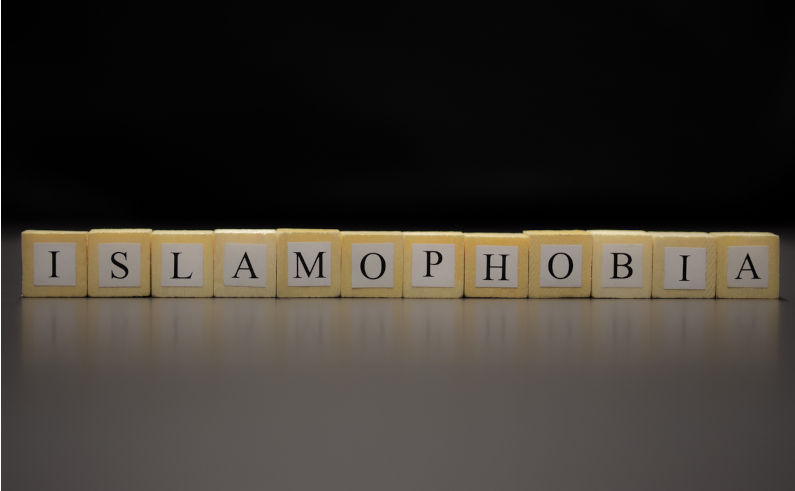The appointment of a Special Envoy on Islamophobia by the Albanese Government comes amidst complex political times and strained community relations with Australia’s Muslim leadership.
The creation of the role of a Special Envoy on Islamophobia by the Albanese Government arrives amidst a troublesome political climate, raising pertinent questions about its purpose and priority. Central to this decision is the challenging task of finding a qualified candidate who can fulfill the role’s objectives of social cohesion and help restore trust with the government.
Despite promising an announcement over a month ago, the government remains in a predicament, seemingly unable to appoint a suitable candidate for the role. Following a recent cabinet reshuffle, which saw Tony Burke become the new Minister for Home Affairs, Immigration, and Multiculturalism, and the appointment of Peter Khalil as Special Envoy for Social Cohesion, all attention is now on the imminent announcement for this position.
Recent media reports indicate that several potential candidates have declined the role, an unsurprising response given the growing backlash within the Muslim communities regarding the government’s stance on the Israeli-Palestinian conflict.
For the Albanese Government, appointing such an envoy must signify a genuine commitment to confronting Islamophobia comprehensively, including an openness to critique government policies where necessary, without fear of reprisal. This requires a preparedness from policymakers to engage in uncomfortable but necessary conversations about the root causes of Islamophobia, which often intersect with broader issues of foreign policy.
Ideally, the envoy should possess not only credibility within the Muslim community but also a nuanced understanding of the sensitive issues at play amidst the political climate with the ongoing the war on Gaza. This risk can potentially undermine the envoy’s role from the outset, as meaningful discourse on Islamophobia cannot exist in isolation from broader geopolitical concerns affecting Australian Muslims.
Crucially, the envoy’s effectiveness hinges on the government’s willingness to heed their counsel and implement critical recommendations. Disregarding this will reinforce perceptions that the role is merely tokenistic further eroding trust within the community and further strain relations in the lead up to the upcoming federal election.
A more pressing question is whether such a role is truly necessary. Critics contend that no prominent Muslim groups have explicitly called for a special envoy, raising doubts about grassroots support and its overall effectiveness.
Some Muslim commentators question why the government doesn’t simply empower existing bodies, like the Race Discrimination Commissioner, instead of creating a new envoy position. This brings up the pertinent question: how does the Race Commissioner fit into this new approach?
Other suggestions include enhancing the Australian Human Rights Commission and strengthening anti-discrimination laws and legislation to more effectively address issues like Islamophobia and antisemitism. Allocating the resources to strengthen established government-funded commissions may prove more effective in fostering social cohesion than creating new positions.
In allocating public funds, the government must consider whether creating a new envoy position is the most efficient use of resources. Could these funds be better utilised to support initiatives that directly promote social cohesion and combat prejudice across all communities? Strengthening education and community outreach programs and supporting existing anti-discrimination bodies may offer more sustainable solutions than a single envoy role.
The appointment process highlights the critical need for broader consultations with the diverse Muslim community leadership. Without this, the envoy risks being seen as a government apologist, serving primarily its own political interests. Such a perception could significantly undermine the envoy’s ability to effect meaningful change.
The role should not merely involve appointing a figurehead. If the envoy’s position lacks genuine authority or if their recommendations are consistently disregarded by policymakers, there is a risk it could be perceived as tokenistic. This perception could undermine trust within the Muslim community and lead to further disillusionment with government efforts to combat Islamophobia.
An important consideration would be to prioritise appointing a Muslim woman with strong community standing and expertise in Islamophobia, rather than defaulting to a traditional Muslim male leader. Most victims of Islamophobia are women, and much of the community work in this area to date has been led by Muslim women.
The government without a doubt faces a real challenge: overcoming critics within the Muslim community who view the appointment as a political manoeuvre rather than a genuine effort to address Islamophobia. These critics question the government’s motives, arguing that the envoy’s role could be used to pacify or appease specific constituents without enacting meaningful change. To dispel these doubts, the government must ensure that the envoy is endorsed by Muslim community leaders and that the role carries genuine authority, with recommendations taken seriously by policymakers.
Ultimately, the success of the role hinges on navigating the broader challenges of social cohesion amidst the political climate with sensitivity and foresight and a genuine commitment to effective policy change. Anything less risks exacerbating community tensions that this role aims to address.

Nail Aykan
Nail Aykan is a respected leader within multicultural and multifaith communities with a strong record of active engagement in the social cohesion space. He served as the Executive Director of the Islamic Council of Victoria (ICV) for eight years.
